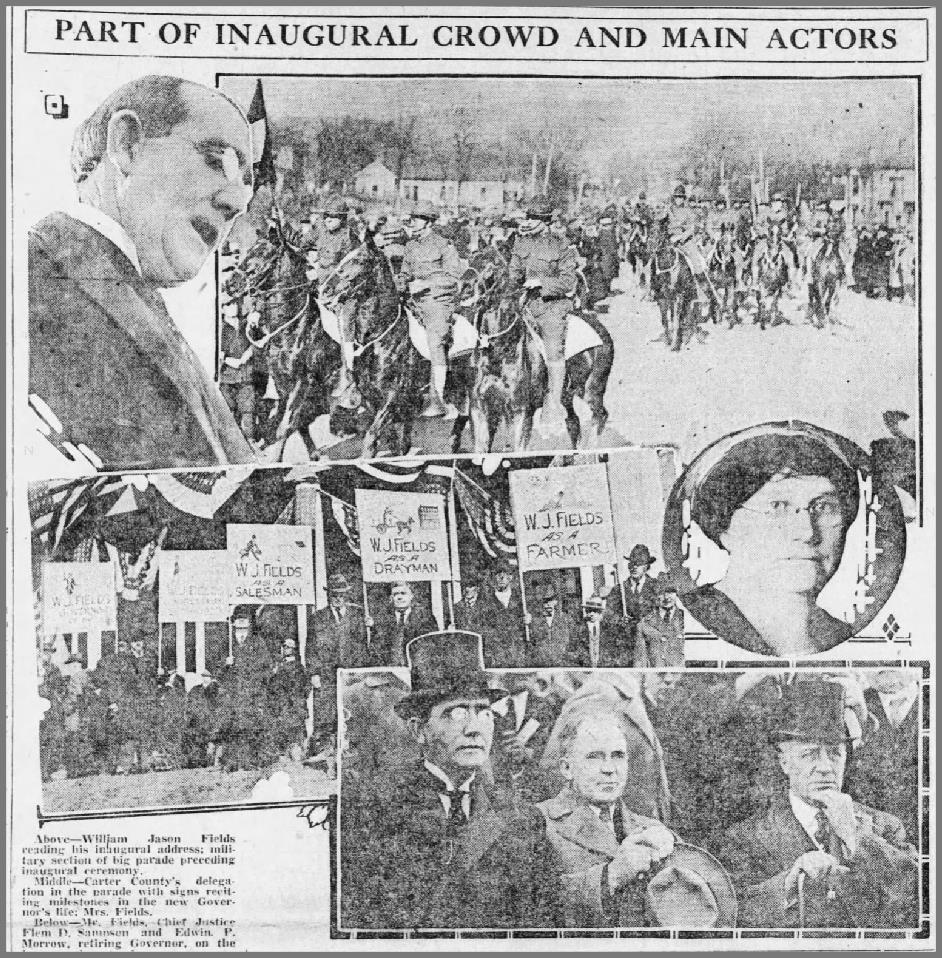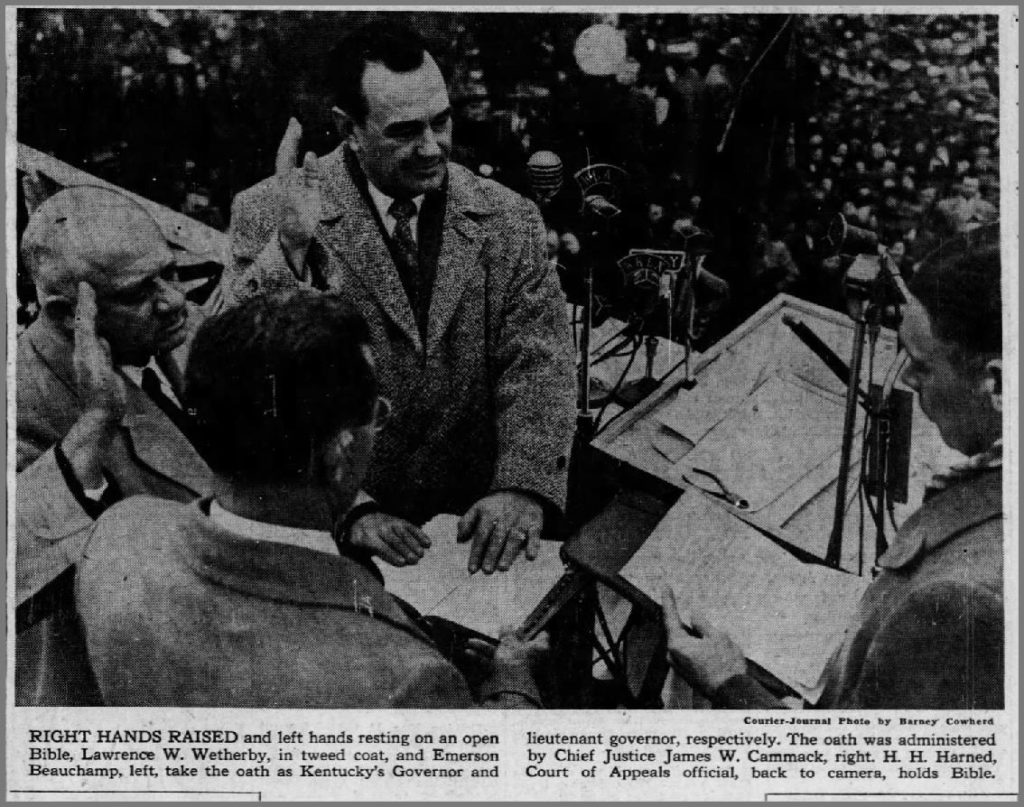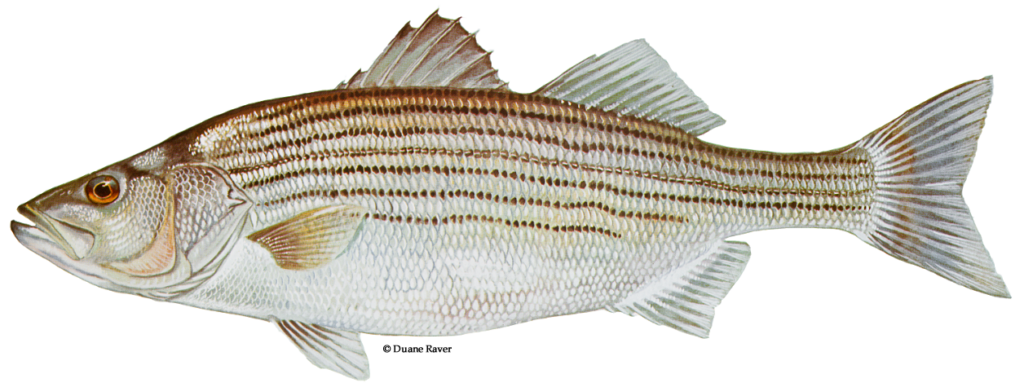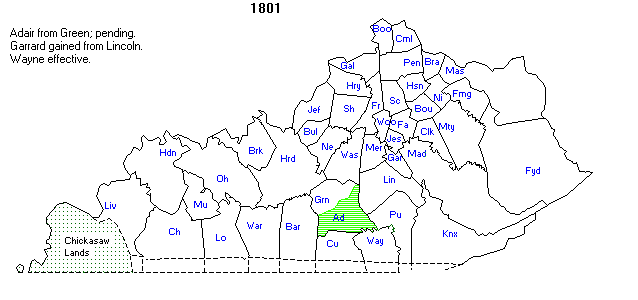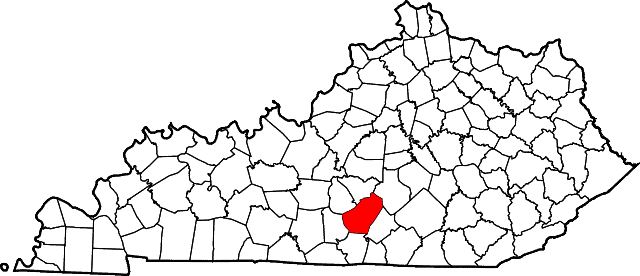Localtonians wish a Happy Birthday to Isaac Shelby , the 1st Kentucky governor, born in 1750. The Frederick (Washington County, MD) native was the son of Evan and Letitia Cox Shelby. His father was a native of Tregaron, Cardiganshire, Wales, who had immigrated to America with his father’s family about 1734 when he was sixteen.
On December 11, 1787, locals formally created Maysville and named it after John May . The area around the town’s post office was named Limestone from 1794 to 1824, but it officially became Maysville around 1799. Defeating the Native Americans at the Battle of Fallen Timbers in 1794 made the area safe for settlement. Maysville attracted famous visitors, such as Henry Clay and Gen. Lafayette, and the fine taverns played a part.
December 11, 1801, Kentucky created Adair County from Green County and named it in honor of John Adair, the 8th Kentucky governor. Columbia is the County seat, chosen one year later. Other localities include Breeding, Glens Fork, Gradyville, Knifley, Neatsville, Pellyton, Sparksville, Cane Valley, Coburg, Holmes Bend, and Kellyville. Adair County, the 44th county created, covers 412 square miles.
Kentucky 1801 By David Benbennick Localtonians wish a Happy Birthday to Manchester native Miss Laura Rogers White , born in 1852. Ms. White was one of the first women to graduate from the University of Michigan (1874). She also studied architecture at the Massachusetts Institute of Technology (M.I.T.) in Boston and the Sorbonne in Paris, France. Laura designed the First Christian Church of Ashland, one of her outstanding architectural achievements, completed in 1890.
Localtonians wish a Happy Birthday to Louisville native Thomas Coleman DuPont , born in 1863. The industrialist and U.S. Senator spent much of his young life in Kentucky. In 1927, Thomas offered to purchase the Cumberland Falls area for $400,000 to preserve it naturally. In 1931, his widow donated the land as a public park. The Kentucky Encyclopedia edited by John E. Kleber; pg: 344
December 11, 1909, Jailer William Vernon Coffey, Green County Jail , died arresting a drunk and disorderly man in the Greensburg public square. The Greensburg town marshal was out of town at the time. Hence, Jailer Coffey protected the public. The man pushed Jailer Coffey away and immediately shot him in the face before fleeing on his horse.
December 11, 1923, Willard native William J. Fields, known as “Honest Bill from Olive Hill,” became the 41st governor . He increased the gasoline tax to help fund his highway program and preserved Cumberland Falls from industrial development by working with T. Coleman du Pont. However, to the dismay of many, the Carter County native loved keeping his dairy cows on the Governor’s Mansion’s lawn. A New History of Kentucky by James C. Klotter
Kentucky’s 1923 Inauguration December 11, 1931, Sheriff Albert Bogie, Madison County Sheriff’s Office , succumbed to injuries sustained in a vehicle crash on Curtis Pike the previous day while he and a Berea police officer were en route to conduct an alcohol raid.
December 11, 1939, Sergeant Louis F. Fowler, Louisville Police Department , died after his motorcycle fell on him near the intersection of North Sixth Street and West Main Street four days earlier.
December 11, 1951, Middletown (Jefferson County) native Governor Lawrence Winchester Wetherby took the oath of office for a 2nd time to remain Kentucky’s 48th governor. In the general election, Wetherby faced Republican Court of Appeals Judge Eugene Siler, a fundamentalist Christian who claimed state government was corrupt. Siler cited gambling in Northern Kentucky, bribery accusations against members of Clement’s and Wetherby’s administrations, and a 1951 scandal involving the UK’s men’s basketball team; he referred to Frankfort as “our Nineveh on the Kentucky River.”
Kentucky’s 1951 Inauguration December 11, 1958, click to see Columnist Ann Landers, at Lexington’s Phoenix Hotel , admiring her ashtray fashioned from Faultless’s hoof print. The Calumet Farm colt won the Blue Grass Stakes and finished 3rd in the Derby.
December 11, 1970, two and half years after the race, a circuit judge ruled the Kentucky Racing Commission erred in denying 1st place money to Dancer’s Image when he crossed the finish line 1st in the 1968 Kentucky Derby.
December 11, 1976, UK officially dedicated Rupp Arena as their home court. The festive evening honored former Kentucky coach and Kansas graduate Adolph Rupp who sat in a recliner at midcourt. The Cats defeated the Jayhawks 90-63. Six players scored in double figures: Jack Givens 15, James Lee 14, Rick Robey 13, Dwane Casey 13, Mike Phillips 12, and Larry Johnson 10, before a crowd of 23,107.
December 11, 1979, Kentucky swore in Lexington native John Young Brown, Jr. as the 55th governor . He appointed a woman and an African-American to his cabinet, as promised. The most controversial appointment was Frank Metts, Secretary of Transportation, who broke political tradition by announcing that contracts would be awarded based on competitive bids. As a result, Metts doubled the miles of roads resurfaced. In challenging economic times, Brown stuck to his campaign promise not to raise taxes. Instead, he reduced the state budget by 22% and cut the number of state employees by 6,400, primarily through transfer and attrition. Simultaneously, his merit pay policies increased salaries by 34%. He cut the executive office staff from ninety-seven to thirty and sold seven of the state’s eight government airplanes. He also required competitive bids from banks, generating $50 million in revenue. He created communications and contacts with Japan, setting the stage for future economic relations. Brown stayed absent for more than five hundred days during his four-year term. As noted by Kentucky historian Lowell H. Harrison, Brown’s hands-off approach allowed the legislature to gain power relative to previous governors for the 1st time in Kentucky history, a trend that continues today.
December 11, 1982, click to see Eastern Kentucky University football coach Roy Kidd get a ride to the locker room after his Colonels earned their 4th straight trip to the NCAA Division I-AA football championship game with a 13-7 victory over Tennessee State.
December 11, 1984, click to see Bruce Springsteen watch Clarence Clemons play the saxophone before 23,000 fans in Rupp Arena. Clemons, a prominent member of Springsteen’s E Street Band, died in 2011 of a stroke.
On December 11, 1985, Roger Foster set a Kentucky record by catching a 58 pound 4 ounce Striped Bass (rockfish) in Lake Cumberland . It weighed nine pounds less than the world record yielded by the Colorado River in Arizona.
December 11, 1995, Governor Brereton C. Jones, on his final day as governor, pardoned nine women who committed a crime against their alleged abusive spouses.
On December 11, 2005, in Seattle’s NFC West-clinching victory over the San Francisco 49ers, Florence native Shaun Alexander had his ninth 100–yard rushing game of the year , breaking Chris Warren’s franchise record of eight 100–yard games. In the process, he also set a more significant NFL record, running for 100 yards against divisional opponents in nine straight games, a record previously held by Walter Payton.
December 11, 2007, Dawson Springs native Steven Lynn Beshear took his first oath to become the 61st Kentucky governor and the 57th individual to hold the office. He would serve 7 years, 11 months, and 28 days.
December 11, 2019, Governor M. Bevin filed 161 pardons and 419 commutations of sentences with the Secretary of State, including commutations for 336 people who were serving sentences solely for drug-related charges . In 2015, Governor S. Beshear issued 200 pardons in eight years, and former Governor E. Fletcher pardoned 100 people during his four-year term.
December 11, 2021, Governor A. Beshear held a news conference in Graves County and stated the previous night was “one of the toughest nights in Kentucky history,” worse than Kentucky’s 1890 twisters that killed 76 in Jefferson County. Officials claimed 80 people died in Western Kentucky’s 165-mile-long tornado path.
By December 11, 2022, over six million Americans had taken Paxlovid, a Pfizer drug, for free, paid for by the government (Universal Healthcare) . The pill helped fight the coronavirus and lessened the virus’s complications. The government said it would stop paying Phizer for the medicine. Pfizer planned to charge patients through insurance. The health insurance company could then approve or deny the bill depending how generous the CEO felt.
On December 11, 2023, Rand Paul mislead the public in a social media post. Why is the question? He didn’t need to demonize the doctor/administrator captured by corporate America. The movie North Dallas Forty had already done this in 1979, however, no one paid attention.
